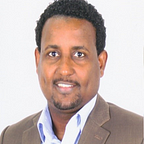The use of Public properties for religious purpose in Ethiopia
Mesquel Square in Addis Ababa -though a public property by legal definition — has been serving for umpteen years as a place celebration of meskele festival for Ethiopian Orthodox Church. After the request by Hallal promotion for breaking the Ramdan fasting or Iftar in mass at Mesquel have been granted ,Ethiopian orthodox Church issue a statement protesting the permission.
Then comes a constitutional issue of the right to use public property?
Ethiopian constitutional philosophy on the state and religion relationship resembles to the French model of strict separation of state and religion. The three essential elements of Article 11 of Ethiopian constitution are the following;
1. State and religion are separate.
2. There shall be no state religion.
3. The state shall not interfere in religious matters and religion shall not interfere in state affairs.
The need for the separation of state and religion and the absence of state religion in the state structure mainly intended to address the historical religious injustice and unfair treatments of some religions in the country. The third element underlines the policy of non-interference on one another which in other means reinforces the principle of secularism.
By extension principal secularism — being on equal distance with all religions- is the core essence of the constitutional Philosophy. Thus, the Ethiopian government has to be impartial and keep its equal distance from all religion and beliefs as much as possible.
In other words ,the use of public properties including Mesquel square shall be equally available for all religions irrespective of the number of their followers or ‘historical rights’. Muslims shall have as equal constitutional right as Christians to use public property for religious purpose. It is even unconstitutional to assign and symbolize a public property to a single religion. Any symbol or process of symbolization of the public asset to a single religion would unfairly influence the upbringing and mentality of children from other religion. It may breed a sense of discrimination .
Yonas Aregawi
